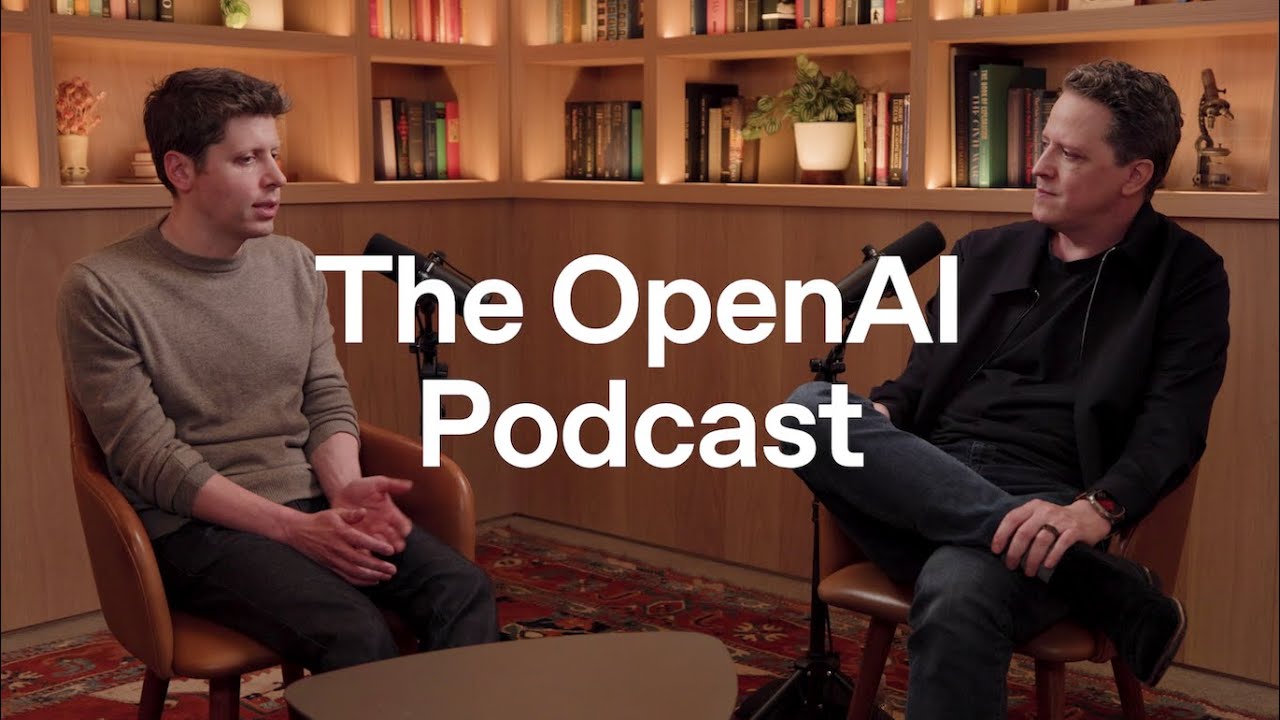
In a revealing conversation on the OpenAI podcast, CEO Sam Altman offered insights into the company's development roadmap, including the much-anticipated GPT-5 model expected to launch "sometime this summer." The discussion explored how OpenAI is redefining artificial general intelligence (AGI) and pushing the boundaries of what AI systems can accomplish.
Redefining AGI in a Rapidly Evolving Landscape
One of the most intriguing aspects of the conversation was Altman's perspective on AGI. He noted that definitions of AGI from just five years ago have already been surpassed by today's models. "These models are smart now, right? And they'll keep getting smarter," Altman explained. "I think more and more people will think we've gotten to an AGI system every year, even though the definition will keep pushing out and getting more ambitious."
Rather than focusing on traditional AGI benchmarks, Altman shared his vision of what might constitute superintelligence: "If we had a system that was capable of either doing autonomous discovery of new science or greatly increasing the capability of people using the tool to discover new science... that would feel like kind of almost definitionally superintelligence to me and be a wonderful thing for the world."

GPT-5: What to Expect and When
When asked directly about the timeline for GPT-5, Altman confirmed it would likely arrive "sometime this summer." However, he raised an interesting point about the distinction between version numbers and actual capabilities. OpenAI continues to debate whether to "turn up the big number on new models" or follow the GPT-4 approach of releasing continuous improvements to existing models.
This approach raises questions about how users will distinguish between a truly new GPT-5 model versus an exceptionally improved GPT-4. As Altman noted, the line between GPT-4.5 and GPT-5 might be blurry to the average user, suggesting that the focus should be on capabilities rather than version numbers.
AI as a Parenting Assistant
In a more personal segment, Altman shared how ChatGPT has been invaluable in his journey as a new parent. "I mean clearly people have been able to take care of babies without ChatGPT for a long time. I don't know how I would have done that," he admitted. "Those first few weeks it was like every question... constantly. Now I kind of ask it questions about developmental stages more."
This anecdote highlights how AI tools are becoming integrated into deeply personal aspects of life. Altman also reflected on how children born today will grow up with AI as a natural part of their world: "Kids born now will just think the world always had extremely smart AI and they will use it incredibly naturally and they will look back at this as like a very prehistoric time period."
Transformative AI Tools: Deep Research and Operator
Altman highlighted two OpenAI tools that have demonstrated particularly impressive capabilities: Deep Research and Operator. Deep Research has transformed how people conduct research, allowing users to generate comprehensive reports on any topic of interest. "It is an amazing new tool for people who really have a crazy appetite to learn," Altman noted.

Meanwhile, Operator, which allows AI to use a computer, has been an AGI breakthrough moment for many users. "There's something about watching an AI use a computer pretty well... that feels very AGI-like," Altman observed. This capability to navigate interfaces and perform tasks autonomously represents a significant step toward more general AI capabilities.
The Future of AI in Education and Scientific Discovery
Altman expressed optimism about AI's role in education, noting that when "used along in classrooms with a good teacher, good curriculum, ChatGPT becomes very good." He acknowledged concerns about AI as a "homework crutch" but drew parallels to earlier fears about Google: "I was one of those kids that everyone was worried I was just going to Google everything when it came out and stop learning. And it turns out relatively quickly kids in schools adapt."

Looking toward the future, Altman emphasized scientific discovery as perhaps the most transformative potential application of advanced AI: "I am a big believer that the higher order bit of people's lives getting better is more scientific progress. Like that is kind of what limits us. And so if we can discover much more, I think that really will have a very significant impact."
Balancing Optimism with Responsibility
Throughout the conversation, Altman balanced technological optimism with acknowledgment of potential challenges. He recognized that not all AI developments will be entirely positive: "I suspect there's this is not all going to be good. There will be problems. People will develop these sort of somewhat problematic or maybe very problematic parasocial relationships."
However, he maintained that "society in general is good at figuring out how to mitigate the downsides" and that the benefits of advanced AI will ultimately outweigh the challenges. This perspective reflects OpenAI's broader approach of pursuing ambitious AI development while attempting to address safety and ethical concerns.
Conclusion: The Accelerating Pace of AI Development
As GPT-5 approaches and the definition of AGI continues to evolve, Altman's insights reveal an industry in rapid transformation. The pace of progress from GPT-3 to GPT-4 to the upcoming GPT-5 suggests that AI capabilities will continue to advance at a startling rate, potentially reaching superintelligence-level capabilities in scientific discovery and other domains.
For developers, researchers, and everyday users, this acceleration means continuously adapting to new capabilities and workflows. As Altman noted, "Whatever we thought about what a workflow had to be like and how long something had to take is going to just change like wildly fast." The arrival of GPT-5 this summer will likely mark another significant milestone in this ongoing revolution.
Let's Watch!
GPT-5 and AGI: Sam Altman Reveals OpenAI's Vision for Future AI
Ready to enhance your neural network?
Access our quantum knowledge cores and upgrade your programming abilities.
Initialize Training Sequence